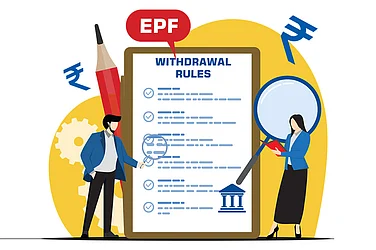Can you tell us about your first job and how much was your first paycheque?
I started working in the year 1994, and my first paycheque was just Rs 3,200.
Was it enough for your needs back then?
No, it was not, but it was fun managing within that much. Each rupee spent was counted and accounted for. That also meant I had to come up with inventive ways to manage my expenses. That also became a phase of learning.
Do you remember doing anything special with your first paycheque?
I was living with a bunch of friends then, and I already owed them enough money by the time I got my first job. We did have a good dinner together though.
Do you have any regrets about how you spent your first paycheque? Would you like to give your younger self any advice?
No, I have no regrets. At that time, it was the right thing to do because there was only so much to spend. In fact, my friends were a big support system. We ended up supporting each other as we started our independent lives together in Delhi.
Going out of home and starting an independent life was pretty daunting at that time. I was definitely not as confident as the young employees are now
Is there any story or experience that reminds you of your first paycheque?
It was more of a relief than anything else. My savings were almost over, I had stopped asking for money from my parents and was desperately waiting for some income to survive in a metro city. So, getting the first paycheque was a huge deal for me.
Do you think earning your own money changed your worldview about how you spend and save?
Going out of home and starting an independent life was pretty daunting at that time. I was definitely not as confident as the young employees are now. So, having my own money gave me the confidence that I was making progress. Also, the mental security it gave was very important for me. At that time, though, the idea of saving never came to my mind. The immediate challenges for me then were paying off friends’ debts, and surviving in a big city on a small salary.
Do you think your first paycheque has somehow been one of the factors that shaped your career?
Yes. The fact that I was good enough to earn money was indeed a big confidence booster. The first few years of my career were not very great financially or from an earning perspective. My next job offered me a better profile but paid even lesser, but at that time I was focused not just on money but learning the ropes and progress in my career. Money-wise, it was hand-to-mouth living and, at times, I had to rely on credit card debt rotation to pay for the extra expenses. It took me a while, and that too, with the help of a personal loan from my friend (my wife now) to get out of my credit card debt.
Almost every advisor says one should start saving as soon as you get your first salary. Did you do so?
This is not an excuse but those days I decided to move out of my friends (house) and lead an independent life due to personal reasons. I moved into a garage in Geetanjali Enclave in Delhi. The rent was `1,600 and my salary was below `4,000. So paying for the basics, including petrol for my scooter, was a struggle. The idea was to survive till the next paycheque came in. There was just no scope for any saving in the early years of my career.
How would you define your relationship with money then and now?
Not much has changed as far as my approach towards money is concerned. I feel it remains a means to my needs. Yes, the need to have it to secure my retirement years plays big time on my mind. At this stage in life, that is my only important financial goal.
Do you have any advice for young professionals and how they should spend their first paycheque?
It is simple. If I had been able to put aside `500 per month right from the beginning, I would have been financially free by now. Since I did not or rather could not, I have to put a large part of my earnings now for my goal. So the sooner you start, the better. Please educate yourself about the power of compounding. It is your best guide to money management.
letters@outlookmoney.com













